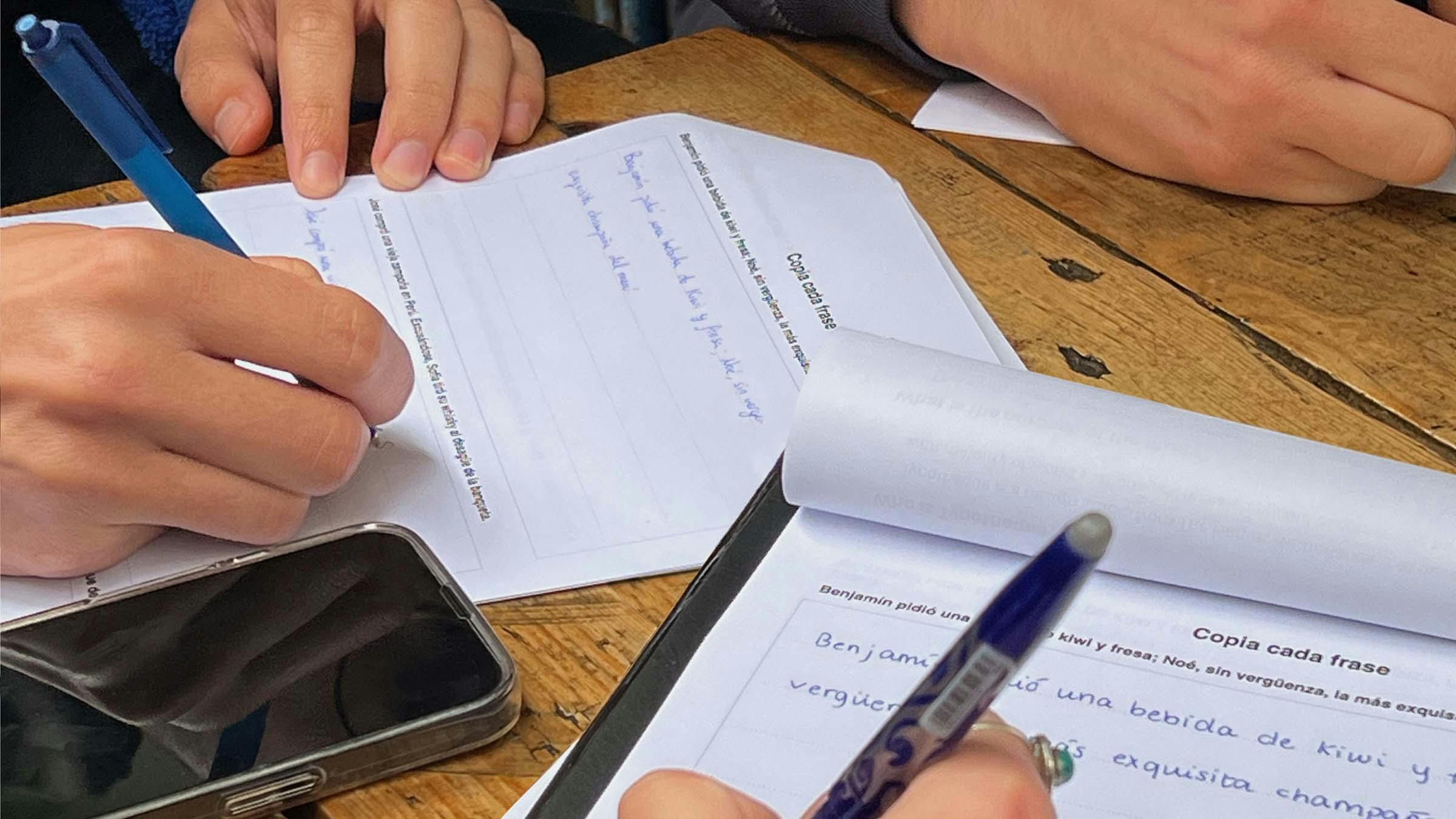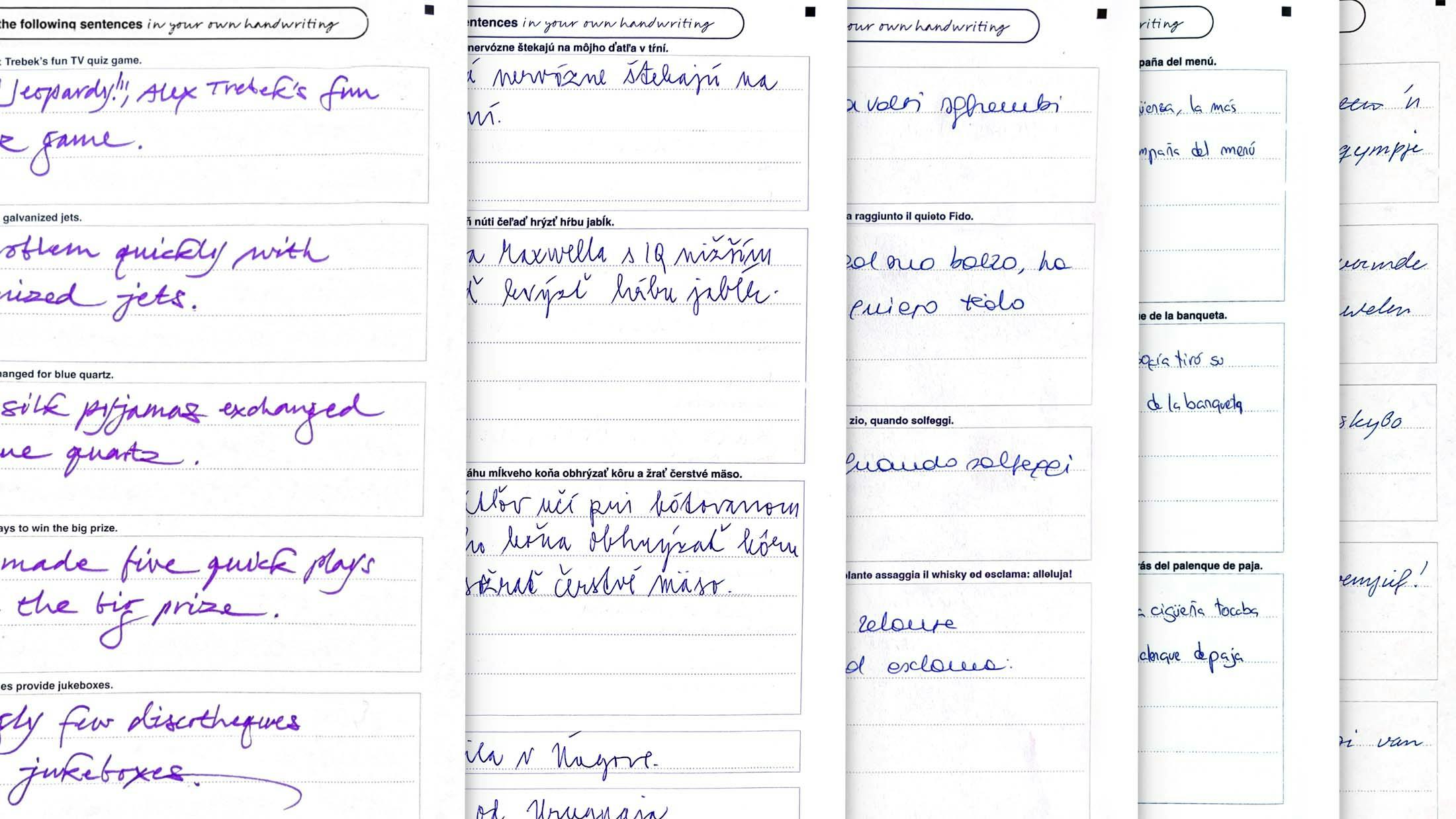
Héctor Mangas is Typotheque’s in-house cognitive researcher. He leads empirical studies on the legibility, accessibility, and social perception of type across scripts and user groups. Drawing on his background in cognitive psychology, his research informs the development of new projects at the foundry. He regularly shares research stories on this site, publishes in peer-reviewed journals, and presents his findings at industry conferences.
Fonts
- Terrassa GradientTerrassa Gradient1 variable font
- Terrassa DisplayTerrassa Display1 variable font
- TerrassaTerrassa12 styles
- Zed Text Semi-WideZed Text Semi-Wide18 styles
- Zed Round WideZed Round Wide27 styles
- Zed Round Semi-WideZed Round Semi-Wide27 styles
Products
 €18
€18Terrassa type specimen
by Nikola Djurek, Manuel Sesma Prieto and Héctor Mangas
This printed type specimen presents the background and design thinking behind the Terrassa typeface. €25
€25New Thai Type
by Peter Biľak, Héctor Mangas and Pracha Suveeranont
This book explores Thai typography’s history, blending tradition and modernity, with insights from Typotheque’s cognitive research and Thai font collection presentation.
Stories

Drawing, Writing, Lettering: From the Geometric Letterform to the Architectural Plan
The geometric nature of Latin letters, which originated in ancient Roman epigraphic capitals, has been much studied since the Renaissance, and architects have long drawn upon this connection, between ancient styles and modern buildings. In this essay, we discuss the link between geometry, architecture and letterforms throughout history, from the early days of the Latin alphabet to the more recent 20th-century trends in architectural lettering.
The Contemporary Effects of Loops: Studying the implications of this unique feature of the Thai script
Three experiments were conducted in Bangkok during early 2024 to assess the effects of loops in reading. Our study evaluated reading performance both at a distance and during continuous reading, and we also assessed the connotations the loops elicit.
Optimising Braille Character Spacing for Enhanced Tactile Reading
Exploring the complexities of tactile legibility and optimal spacing for enhanced reading experiences. Through research and collaboration with international organisations, Zed Braille emerges as a finely tuned typeface, bridging diverse user needs and international standards.
Designing fonts with low-vision readers in mind: A reading acuity experiment
A lab-based experiment developed to empirically improve and test the distance-reading legibility of new typeface, tested on visually impaired readers.
The Familiarity Effect in the Perception of Handwriting
Do we prefer our own handwriting? We conducted a large scale empirical study on how familiarity affects the perception of handwritten text, measuring implicit biases that show people favour text resembling their own style.
Handwriting Database, 566 samples of contemporary Latin writing
This is a database that captures the writing of over half a thousand contemporary users of the Latin script, across 46 countries and 20 languages.